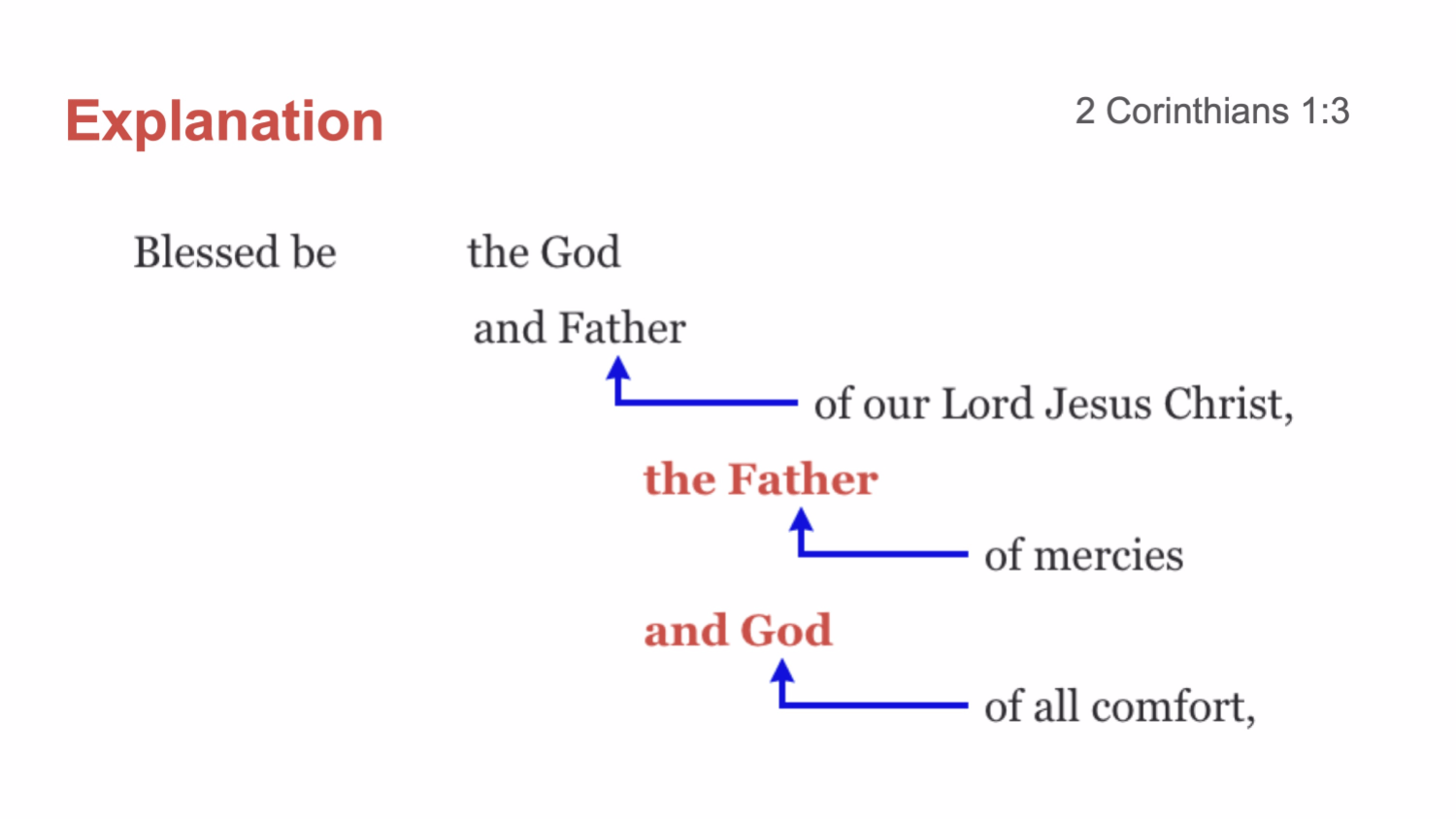Lesson 9 | Digging Deeper into Nonverbal Phrases
Appositional Phrases
An appositional phrase is a specific type of unmarked phrase. It contains a noun usually adjacent to another noun in the anchor phrase, both of which “refer to the same person or thing,” and have the same function in the overall clause, such as acting as the subject or object (Wallace, Greek Grammar Beyond the Basics, 62). In other words, an appositional phrase redefines a noun in the anchor phrase.
Both the appositional phrases in the following passage of Scripture, John 11:1-4, are marked in bold.
"Now a certain man was ill, Lazarus of Bethany, the village of Mary and her sister Martha. It was Mary who anointed the Lord with ointment and wiped his feet with her hair, whose brother Lazarus was ill. So the sisters sent to him, saying, ‘Lord, he whom you love is ill.’ But when Jesus heard it he said, ‘This illness does not lead to death. It is for the glory of God, so that the Son of God may be glorified through it.’"
The “certain man” is further defined by the appositional phrase as Lazarus, and “Bethany” is further defined by the appositional phrase as the hometown of Mary and Martha.
On the Phrasing Relationships cheat sheet, there is only one relationship that an appositional phrase can have with its anchor phrase, marked with the symbol “Ap.” Let’s briefly explore that relationship below, with a scriptural example to aid your understanding.

God the Father is further defined as “the Father of mercies” and as “the God of all comfort.” One way to test for an appositional phrase is by adding the word “namely”: i.e. “the Father, namely the Father of mercies.”